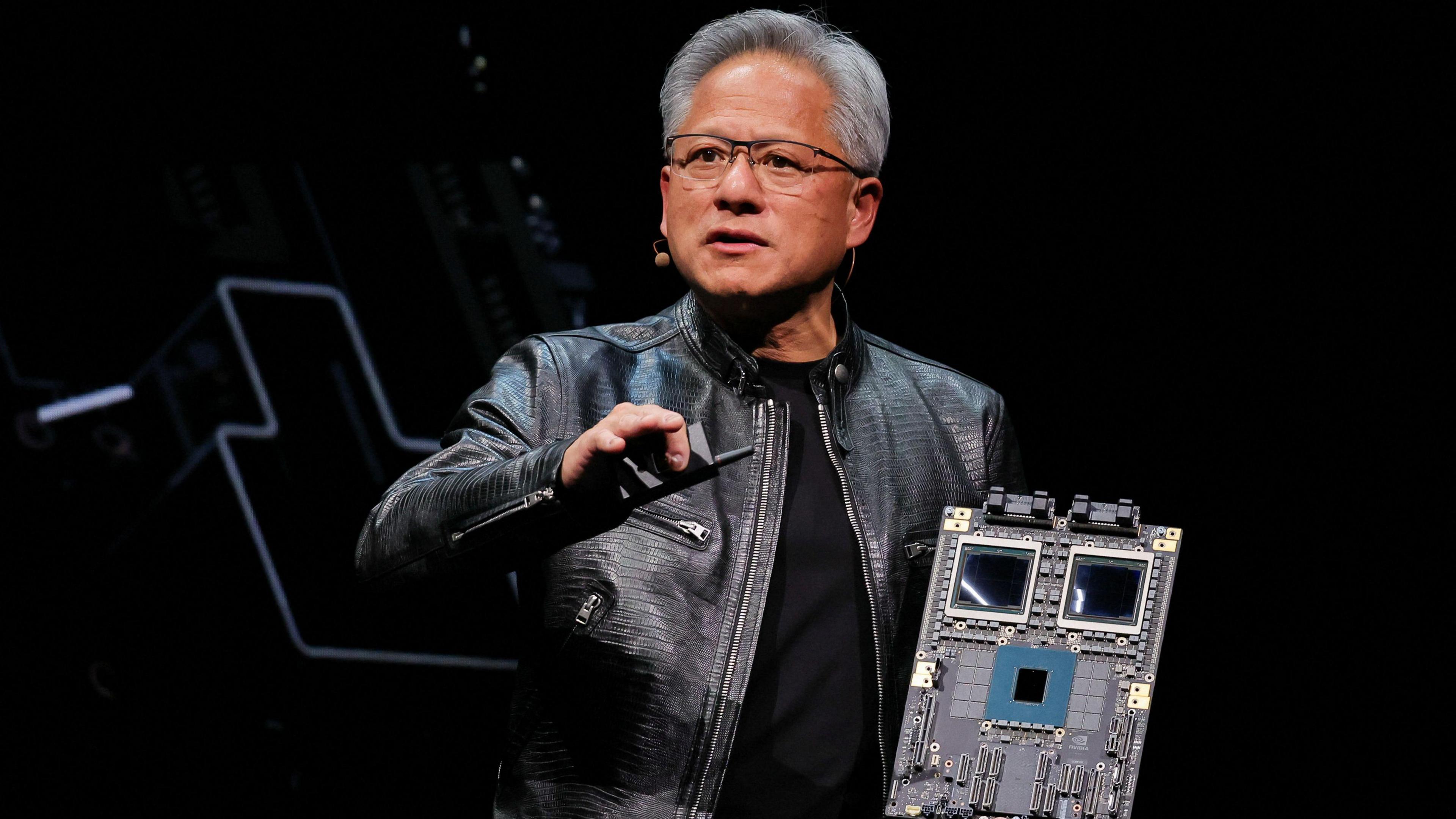Semiconductor Showdown: U.S. Secures 15% of AI-Chip Sales to China
Semiconductor Showdown: U.S. Secures 15% of AI-Chip Sales to China
By
Calder Monroe
Last updated:
August 11, 2025
First Published:
August 11, 2025

Photo: BBC
U.S. markets ended last week on a strong note, with the Nasdaq Composite setting new all-time highs. The rally was driven largely by investor optimism in artificial intelligence and the companies enabling it, particularly chipmakers Nvidia and AMD. Enthusiasm around AI remains strong, even as the industry faces growing political and regulatory headwinds.
A Landmark Revenue-Sharing Deal
In a move that blends trade policy with strategic leverage, the U.S. government has struck an unprecedented arrangement with Nvidia and AMD. Both companies have agreed to hand over 15% of their China-related AI chip sales to Washington in exchange for export licenses. The deal followed a meeting between Nvidia CEO Jensen Huang and President Donald Trump at the White House and marks a significant shift in how the U.S. is monetizing access to China’s vast semiconductor market.
China’s Role in Chipmaker Revenues
The stakes are high—China remains a critical customer base for both firms. Industry estimates place Nvidia’s annual revenue from China at around $17 billion, roughly 13% of its total sales, while AMD earns approximately $6.2 billion from the market, making up nearly a quarter of its revenue. By securing a portion of these earnings, the U.S. gains both financial benefit and continued influence over advanced chip exports.
Security Concerns and Diplomatic Tensions
The deal has not come without friction. Chinese state media, including outlets connected to the Cyberspace Administration of China, have accused Nvidia’s H20 AI chips of being outdated, environmentally unfriendly, and potentially compromised with “backdoors” that could enable remote shutdowns. Nvidia has strongly denied these allegations, assuring that its chips contain no hidden access points or kill switches and warning that such vulnerabilities would be a “gift to hackers.”
Economic Data in Focus
While the semiconductor industry remains in the spotlight, investors are also looking ahead to this week’s economic calendar. The upcoming Consumer Price Index report is expected to provide crucial insight into inflation trends and could influence the Federal Reserve’s interest rate decisions—developments that may impact AI stock momentum.
The Geopolitical Stakes of AI Chips
The 15% revenue-sharing agreement signals a new chapter in the U.S.–China technology rivalry. AI chips are no longer just tools for innovation—they’re also instruments of diplomacy, economic strategy, and national security. As trade policies and trust battles evolve, the future of AI hardware will be shaped as much by politics and profit as by technological breakthroughs.
Popular articles
Subscribe to unlock premium content
Egypt’s Mega Projects: Ambition or Economic Miscalculation?

The Simpsons: 30+ Years of Cultural Impact and Merchandising Mastery

SpongeBob SquarePants: How a Simple Bikini Bottom Cartoon Became a Billion-Dollar Brand

Egypt’s Mega Projects: Ambition or Economic Miscalculation?

The Simpsons: 30+ Years of Cultural Impact and Merchandising Mastery

Egypt’s Mega Projects: Ambition or Economic Miscalculation?









